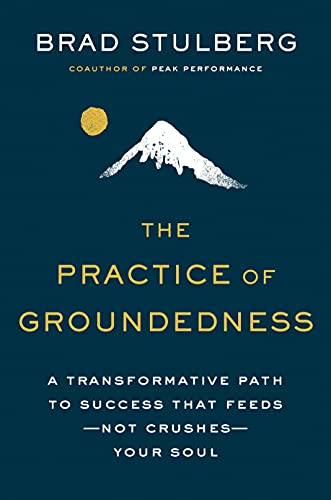In Greek mythology, the god Pan resided just beyond the safe zone and village boundary. When humans mistakenly wandered into his space, they would be overcome with panic, fear, and dread. When they tried to escape, even the most trivial obstacles—small sticks and stones, little holes in the ground, gusts of wind—would elicit paralyzing fear, and in their fear the victims of Pan would spiral down to their deaths. Yet to those who deliberately ventured toward Pan and chose to pay him worship, he was harmless. He bestowed upon his willing visitors abundance, health, and the ultimate gift—wisdom. We’ve all got our own Pans. If we can stop avoiding and running from them—and learn to face them instead— wisdom is ours to gain.
Someone who knows this well is Sara Bareilles. Back in 2014, with four albums and multiple hits to her name, Bareilles was beginning to burn out. She decided to step away from pop celebrity and the recording scene and went back to her roots, focusing on the craft of songwriting, without the other distractions. Out of this period emerged the musical Waitress, for which Bareilles wrote the music and lyrics. The show opened on Broadway in the spring of 2016. It was a smashing success, earning Bareilles a Tony nomination for best original score. She often talks about how transitioning from the stressors, individual pressures, and highs and lows of the pop music industry to concentrate on writing a musical helped rekindle her love for the art of songwriting. It also gave her space to explore some of her own vulnerabilities. In 2019, Bareilles released her first post-Waitress studio album, which pulled no punches and cut right to the chase. The album, titled Amidst the Chaos, is full of songs describing how to live a full and grounded life during commotion and disorder, how to stay strong and unshakable amid so many storms. Shortly after the album was released, Bareilles told NPR that creating Amidst the Chaos made her more vulnerable than ever. The album pushed her writing, piano, and vocals in new and uncomfortable ways. Not to mention, many of the tracks detail her own struggles with anxiety, fear, and sadness in a way that her past work does not.
“In my heart of hearts, I don’t feel like there is such a thing as too close to the darkness. I think we can’t be afraid of what is, and the closer we can go to what’s just true, it sort of takes the bite out of it,” Bareilles told NPR. She says that the more she is “willing to share the deepest and darkest parts” of her experience, the closer she feels to her work, and the closer she feels to herself.
When we choose to visit Pan, hard as it can be, wisdom and inner strength are ours to gain.
FROM IMPOSTOR SYNDROME TO HUMILITY, GENUINE CONFIDENCE, AND STRENGTH
If anyone says or comes across like they have everything figured out, that’s generally a good sign to run in the other direction. The appearance of fervent confidence and absolute certainty may seem like signs of strength, but they are usually signs of weakness. Why? Because if someone or something disrupts your model, worldview, or sense of yourself, then you are prone to falling apart. Pushing away your vulnerabilities and trying to convince yourself and others that you are more certain than you are is one of the surest ways to develop impostor syndrome. Because deep down inside, you know you are faking it.
By knowing that you don’t know everything, that you don’t always have it together, you become more—not less—robust and grounded. You become stronger and more confident. Social scientists sometimes refer to this paradox as intellectual humility, which can be understood as confidence gained by owning one’s limitations and not being overly concerned with being the best or having power over others. It involves active curiosity about your blind spots and perceived weaknesses. Intellectual humility is associated with greater self-awareness, discernment, and openness to new ideas. When you start from a place of humility you end up gaining a stronger, more flexible, and more integrated sense of self.
When you are vulnerable and humble, you not only become more confident and connected to yourself, but you become more connected to others, too. When Kevin Love and DeMar DeRozan put down the weight of heroic individualism and shared their stories of panic, anxiety, and depression, they received thousands of supportive letters from fans and admirers around the world. Other NBA players began to share their own struggles and an entire mental health movement within the NBA emerged. The league began to run nationally televised commercials on the importance of addressing mental health challenges and implemented new guidelines mandating that every NBA organization have a mental health professional on staff.
When Sara Bareilles poured her soul into Amidst the Chaos, she won her first Grammy, for a song called “Saint Honesty,” a particularly revealing track. It’s not surprising that this song resonated with so many listeners. In her memoir, Sounds Like Me, Bareilles writes that over time she’s learned, “Sharing the truth of my own pain and vulnerability could also create a vehicle for connection with others.”
The resounding theme is clear. When we open up with others about our vulnerabilities, we may at first feel weak, lonely, and isolated. Ultimately, however, we gain further strength, confidence, and connection.



